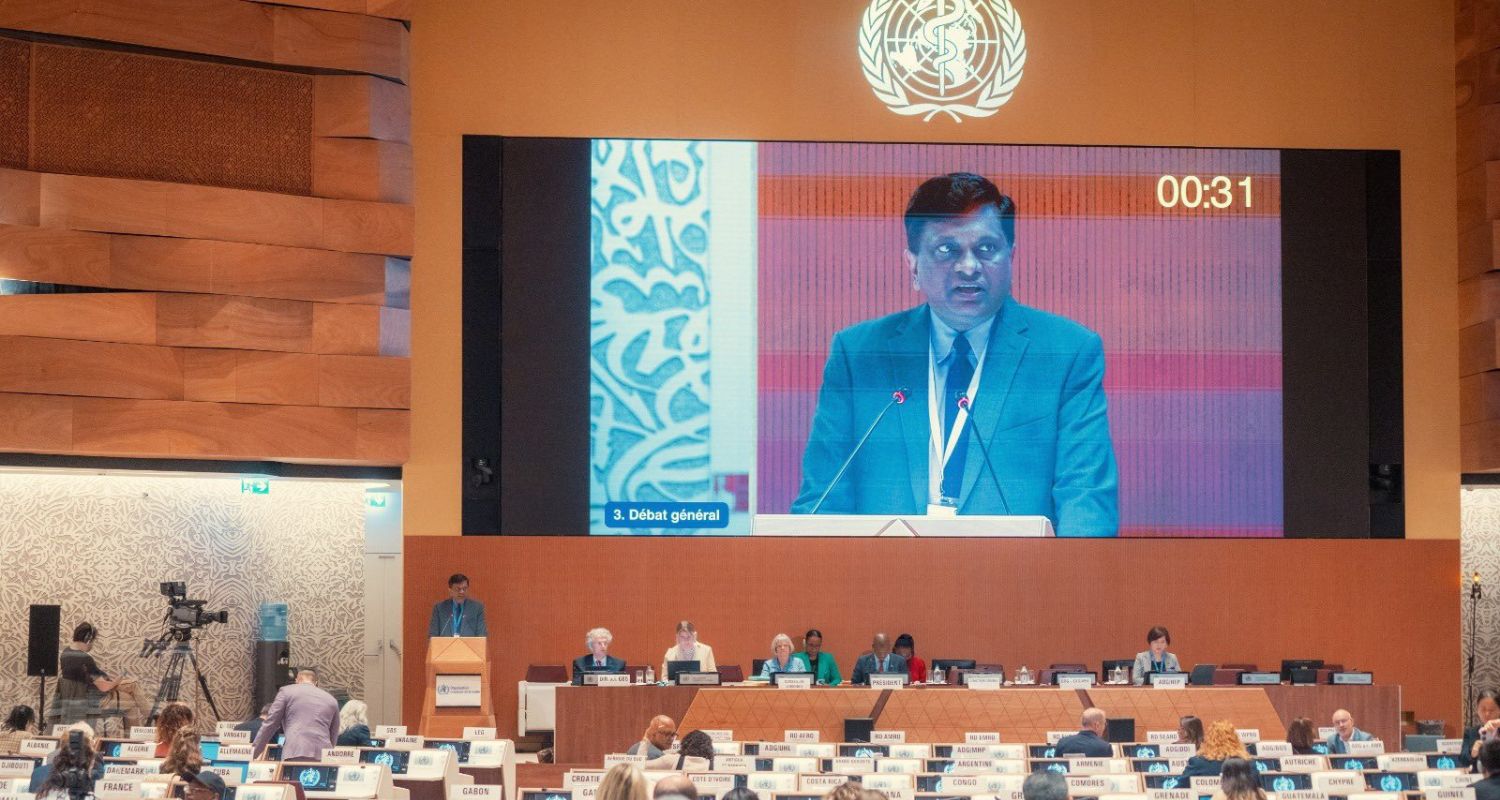Union Health Secretary Apurva Chandra recently addressed the BRICS Health Ministers’ meeting held alongside the 77th World Health Assembly in Geneva. Chandra, who has also been appointed as the head of Committee A at the 77th session of the WHA, emphasised India's active engagement in BRICS health track initiatives.
He highlighted the collaborative efforts aimed at strengthening health systems across BRICS nations to address global health challenges.
During his speech, Chandra outlined India's achievements and contributions during its presidency of BRICS. One of the key initiatives was the proposal for a BRICS-integrated Early Warning System to prevent mass infectious risks in line with international health regulations.
This system aims to enhance disease surveillance through a One Health approach, promoting a comprehensive response to health threats.
Chandra also announced the virtual launch of the BRICS Vaccine Research and Development Centre during India's presidency. The Indian Council of Medical Research (ICMR) - National Institute of Virology (NIV) has been designated as the coordinating agency for the Centre's activities.

The ICMR, in collaboration with NIV and other partner institutes, is conducting phase-3 clinical trials of a recombinant dengue vaccine. Additionally, research and trials are underway for diseases endemic to the region, such as Kyasanur Forest Disease, Nipah virus, Human Papillomavirus, and Mycobacterium Tuberculosis Vaccine.
The Union Health Secretary also addressed the pressing issue of Antimicrobial Resistance (AMR), which is recognized as a global challenge affecting BRICS nations.
India’s national action plan on AMR, launched in 2017, focuses on cross-sectoral collaboration and the One Health approach, aligning with the WHO’s Global Action Plan.
Chandra advocated for stronger collaboration among BRICS countries to develop and implement strategies to combat AMR. This includes data analysis, laboratory quality control, epidemiological assessment, and training initiatives.
Furthermore, Chandra emphasised the importance of advancing collaboration in nuclear medicine and radio-pharmaceutical science among BRICS countries. He highlighted the need to strengthen the radio-pharmaceutical supply chain, enhance isotopes production, and develop advanced digital solutions.
Chandra concluded his address by urging BRICS member states to enhance cooperation and work together to tackle various health challenges. He underscored India's commitment to fostering collaboration and advancing joint health agendas within the BRICS framework.
Senior officials from the Union Health Ministry, including Additional Secretary Hekali Zhimomi and Additional Secretary and Managing Director (NHM) Aradhana Patnaik, were present at the meeting.
The gathering reiterated India's active participation in BRICS health initiatives and its dedication to addressing critical global health issues through collaborative efforts.
India's active engagement in BRICS health initiatives reflects its commitment to strengthening health systems and addressing global health challenges. The collaborative efforts, particularly in vaccine research, AMR, and nuclear medicine, highlight India's leadership and proactive approach in promoting health security and well-being across BRICS nations.


